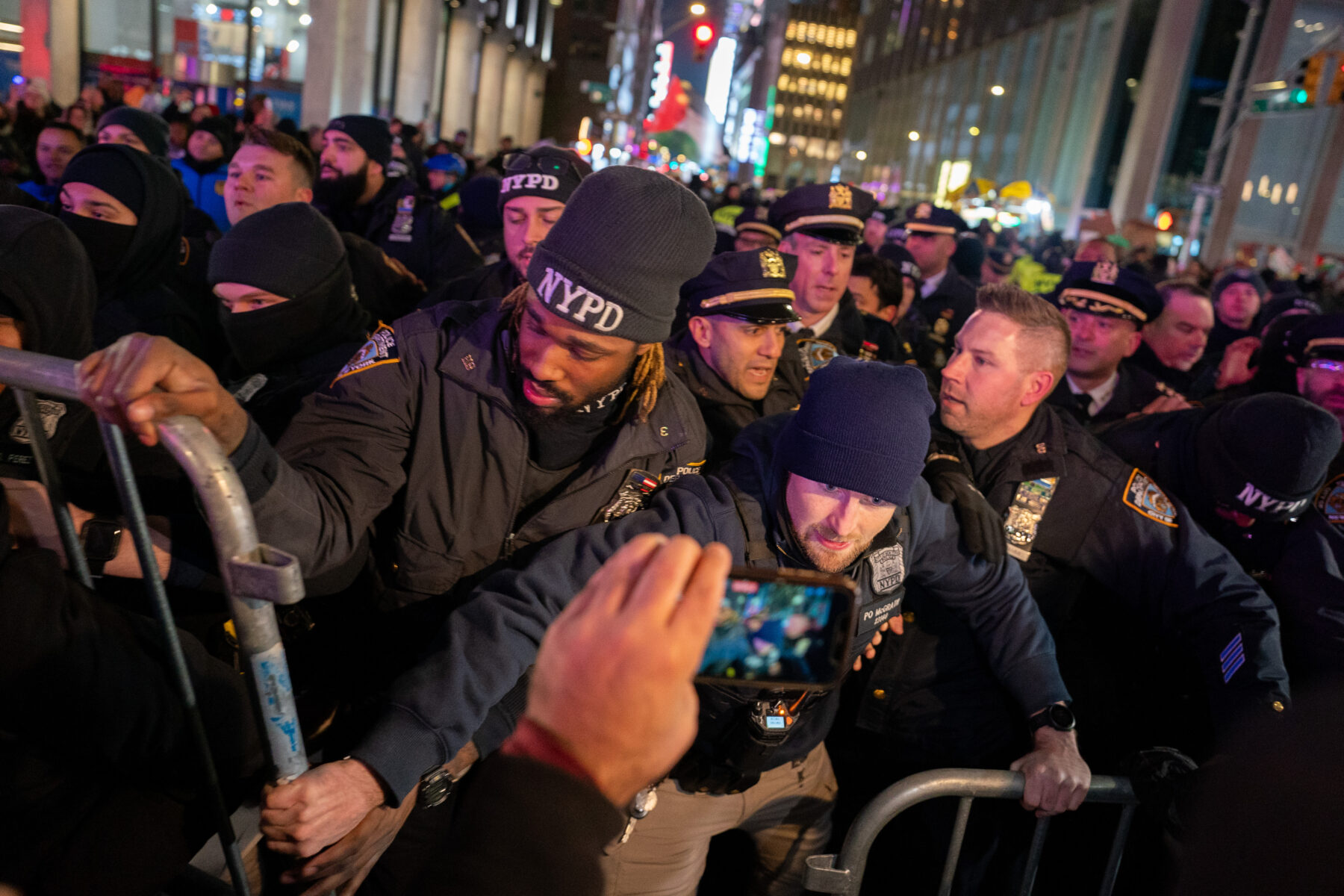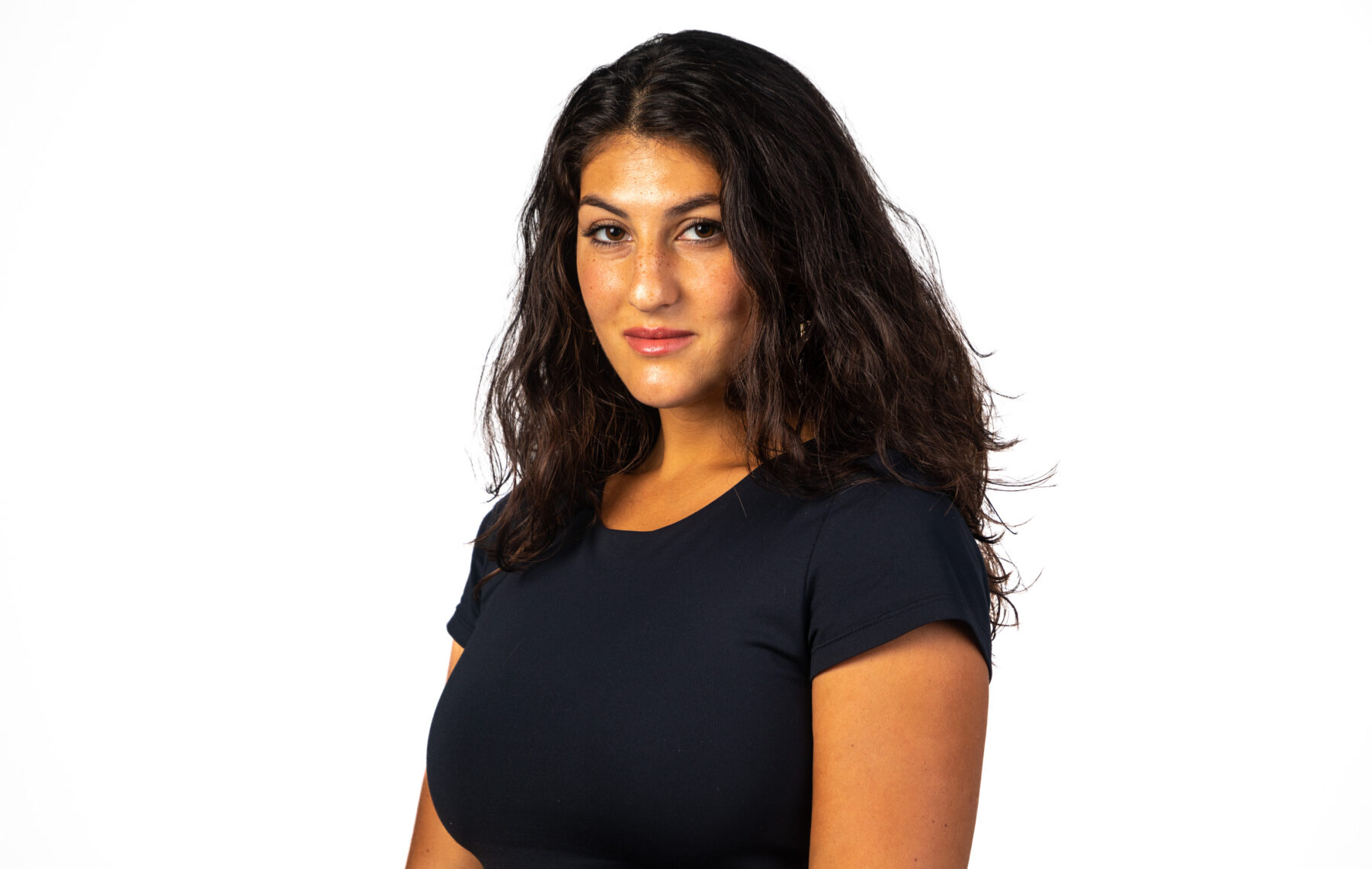
In September 2020, LAist reporter Josie Huang was covering a Black Lives Matter protest outside a Los Angeles hospital when the police slammed her to the ground and detained her. She had been wearing a press pass and repeatedly identified herself as a journalist.
Just last month, three years after her arrest, she reached a $700,000 settlement with the LA County Sheriff’s Department. It was not only the largest award to an individual journalist, it also required sheriff’s deputies to undergo additional training on press rights.
The ruling is “a really important step forward in requiring departments to remind deputies of their legal obligations to allow journalists to do their jobs,” said Katie Townsend, who represented Huang and is deputy executive director at the Reporters Committee for Freedom of the Press. “Not only did it redress the experience Josie had to endure, it will hopefully help prevent similar situations from occurring in the future.”
As protests break out across the country over the Israel-Hamas war, journalists may not understand what rights they have or how newsrooms should prepare them for such coverage. In recent weeks, two reporters have been detained while covering pro-Palestinian demonstrations, including Alisa Reznick, a reporter for Arizona station KJZZ who was arrested on a charge of criminal trespass. She, too, was wearing press credentials and had identified herself as press.
The rallies, as well as the 2024 presidential campaign, have brought renewed focus on the steady erosion of press freedom. Legal experts and reporters who followed the 2020 Black Lives Matter protests spoke to NBCU Academy about how journalists can learn and exercise their rights when documenting protests and abuses of power.
Be prepped and trained by your news organization
The First Amendment, which covers freedom of speech and freedom of press, affords journalists broad privileges to access public spaces to gather and share news — including covering demonstrations. Failure to follow dispersal orders or trespassing on private property can constitute probable causes for arrest.
Townsend said that while law enforcement agencies should conduct internal training on press rights, it’s also incumbent on media organizations to protect their staff.
“As we think forward to the presidential election year, with the possibility of more protests and demonstrations, it’s important for newsrooms to have a plan in place for how reporters can stay safe and avoid getting into dangerous situations,” she said.
At NBC News, any employee assigned to cover a protest, warzone or other high-risk story is required to take an in-person special training. For newsrooms without official protocols, the Reporters Committee has compiled a best practices guide on protest coverage that includes tips such as having a hotline or attorney’s number on hand. Townsend said a challenging but vital skill for reporters to develop is situational awareness in crowded spaces. She also recommended that journalists wear credentials so they can be easily identified as members of the media.

Andrea Sahouri, a criminal justice reporter for the Detroit Free Press, said the challenge of establishing standard safety practices is that the police overlook press privileges. According to the Press Freedom Tracker, police have made nearly 250 arrests of journalists since the database launched in 2017; more than 70 journalists report police used excessive force during their arrests.
In the summer of 2020, while reporting on a Black Lives Matter protest for The Des Moines Register, Sahouri was pepper-sprayed and arrested by police despite repeatedly identifying herself as a journalist. Of nearly 150 journalists arrested or detained on the job that year, Sahouri was the only one to stand trial, according to the Press Freedom Tracker. (She was acquitted in March 2021.)
“As journalists, we obviously report on abuses of power and the length that those in power would go to silence people,” she said, “but experiencing them firsthand gave me a different level of understanding that’s made me a better, stronger reporter.”
Sahouri was only a year out of Columbia Journalism School, on her first staff reporting job, when she was arrested. She encourages younger reporters in her position today to first bluntly evaluate the risks of chronicling civil unrest and decide if they’re up to the challenge. The next step, she said, could be seeking out free safety training courses in crisis reporting from organizations like the Dart Center.
“There will be intimidating situations that we’re put in,” she said. “If that’s not you, speak to your editor. If that’s something you do want to do, I’d not let powers that be intimidate you. Listen to your intuition, but don’t let them silence you.”
Understand how and when to take legal action
Kintsugi Kelley-Chung, an independent journalist and documentary filmmaker, successfully sued the Metropolitan Police Department in Washington after getting arrested while covering a D.C. protest in August 2020. He said he also fought for police reforms and policies to protect independent journalists, but did not get much traction. The police department did settle with Kelley-Chung for an undisclosed amount, though, which covered the costs for his confiscated camera equipment and lost freelance income, and funded the production of his three-part documentary, “Free the People,” about the D.C. protest movement against police violence.
“I knew I was a target because I’m press, especially because I’m Black press, and I’m well respected in the activism scene,” said Kelley-Chung, who is of Jamaican, Chinese and Japanese descent. “So while I know my rights, I also know they don’t care about my rights.”

Kelley-Chung said he decided to sue because he knew the moment officers grabbed him that they had violated his First Amendment rights. After he spoke about the arrest on a local station and a few other media outlets, the National Press Photographers Association’s executive director offered him an annual membership and connected him with a lawyer who pursued the lawsuit.
“Press freedom has nothing to do with whether or not you are a member of an institution,” he said. “This is a right afforded to you as a citizen.”
LAist’s Huang said she decided to pursue legal action because she didn’t want to be “bullied into silence” by powerful people reporters are supposed to hold accountable. Several months after Huang’s arrest, her husband reached out to the Reporters Committee on her behalf to seek legal representation. The organization brought on a law firm with a track record of handling First Amendment cases. As a result of the settlement, the sheriff’s department had to implement reforms and destroy her arrest records.
“As time went on, my anger about being attacked physically and professionally for simply doing my job wasn’t going away,” Huang said. “What happened just wasn’t acceptable, and I wanted something to change.”
Create a community of journalists
Kelley-Chung said it’s crucial for younger freelance journalists to establish a “buddy system” before going out to heavily policed events. He said one effective way is networking and creating strong bonds with other independent journalists and artists. He also emphasized the importance for reporters to build relationships that aren’t just transactional with the communities they’re covering.
“That builds trust with people you’re documenting,” he said. “When you have that trust, they’re more likely to keep you safe as well.”
Sahouri said finding the right mentors can be a gamechanger. Her mentor at Columbia Journalism School, Ann Cooper, alerted the university to her trial and led a campaign to have the prosecutor drop the charges. Some 250 affiliates of the Journalism School signed a letter of support.
Sahouri understands how fortunate she was to have two great lawyers, mentorship and the backing of her newsroom. “The privilege that I had is not a privilege afforded to others,” she said.


